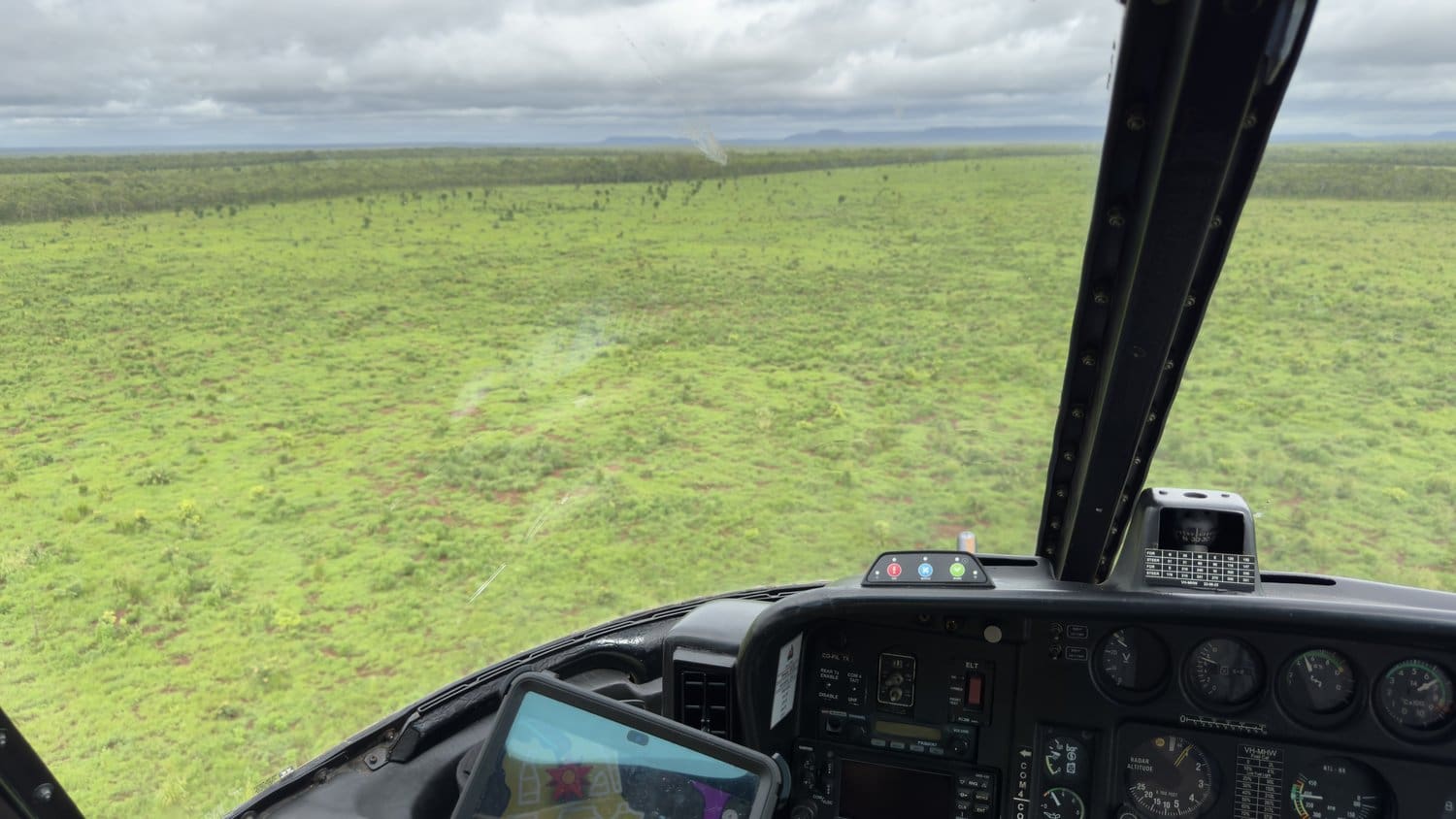
Douglas West is being sold by the Tipperary Group to CropScale Australia. Photo: CropScale Australia
AUSTRALIAN farm-management and investment group CropScale Australia has agreed terms to acquire the 42,300ha Douglas West in the Northern Territory.
Douglas West is the smallest of the Tipperary Group of Companies stations, namely the 209,842ha Tipperary East and West, and the 133,859ha Litchfield, owned by Melbourne barrister Allan Myers.
Douglas West sits close to the Stuart Highway, roughly halfway between Katherine and Darwin, and has sealed roads to the gate, mains power with its own substation, and environmentally sound sewer and water facilities.
The pending deal is taking place off-market transaction for an undisclosed sum.
First for CropScale
Coppelian Capital Ventures is the investor behind CropScale Australia.
Based in London, and with offices in Singapore and Melbourne, Coppelian last year announced it was investing in an agribusiness venture in the NT.
“There are three global geo-zones with rainfall and soil types will allow agribusiness development at an industrial scale: Kenya, Brazil, and Australia’s Northern Territory,” Coppelian said in a statement on its website.
“Australia offers economic and political stability, excellent export/trade agreements, a strong and stable currency, audited ESG credentials, robust regulation, and excellent infrastructure.
“Since the NT’s government began to cross the rubicon; moving away from a 150-year-old pastoral land-use philosophy toward its published and current investment-focussed approach for land development, the NT has become one of the world’s fastest growth regions for agricultural development, particularly for food and textiles.”
As Coppelian’s operational arm, CropScale said its plans for Douglas West are to operate regenerative agricultural and pastoral activities to bring significant technology and benefits to the NT, and northern Australia’s agricultural industry generally.
Project managing director Phillip Walter said CropScale’s approach to profitable regenerative agriculture will see a holistic farming methodology that focuses on renewing and enhancing soil health and nutrient levels.
“Lack of working capital and negative impacts on profitability are the most quoted barriers to farmers transitioning to a regenerative approach to soil ecology,” Mr Walter said.
He said CropScale has developed a broadacre farming methodology designed to increase crop margins, farm profitability, and reduce input costs tailored to operations covering more than 2000ha.
“Regenerative agriculture and maximising shareholder value are not opposites.
“Regenerative agriculture prioritises cropping strategies that add organic matter and biodiversity to soil, leading to a more resilient ecosystem.
“This practice involves techniques including crop rotation, cover cropping, reduced tillage, and integrating livestock manures.”
While cotton is on the rise in the NT following the opening last year of its first gin, and successful crops on properties including Tipperary, it has not been mentioned in the Douglas West announcement.
Five-year plan for station
CropScale’s regenerative methodologies structured for the NT are looking to build a system that produces more nutritious food, sequesters carbon in the soil and, when combined with its technology platform, reduces reliance on external fertiliser inputs.
“We have planned to reinstate nature corridors on historically cleared land to support and encourage native flora and fauna, and practice crop rotation to support healthy soils with sustainable seasonal water use through crop selection, climate-proven technologies, and agronomy science.
“CropScale is planning to capitalise on the property’s excellent soil potential over a sensible five-year period, adhering to best-practice regenerative-farming approaches.”
The new owner also plans to engage with NT industry and research.
“Our senior team includes highly skilled local station management who know the property well and will live on farm, and the wider advisory team includes well-known NT agronomists and crop specialists.
“We have been on-station conducting surveys and research since last year.”
Investment from CropScale’s operations subsidiary Territory Harvest into on-site wholesale and retail crop processing will achieve overall gross margin uplift for regional farmers.
The group’s platform and consulting division, CropScaleAI, has the ability to monitor broadacre crop health and soil ecology with centimetre-level accuracy.
This will allow assessment of individual plant health and reduce input costs using established monitoring hardware and proprietary software, including variable command uploading into John Deere machinery.
This is enabled by StarLink’s low-orbit broadband network combined with GeoScience Australia’s GNSS station in the Daly region.
Tipperary Group of Companies owner Allan Myers said CropScale has the ability to add value to NT’s agricultural industry.
“We were impressed with CropScale’s data-driven and disciplined approach and sustainable practices,” Mr Myers said.
Source: CropScale Australia, Coppelian Capital

HAVE YOUR SAY